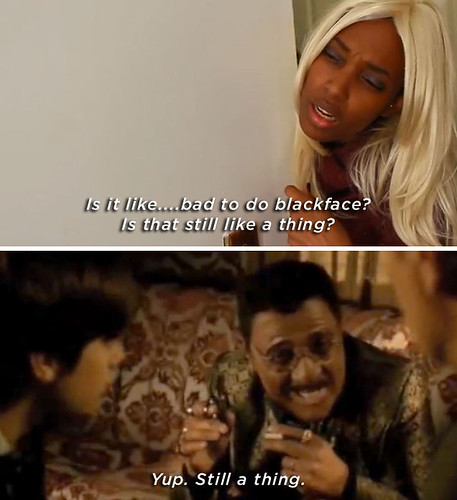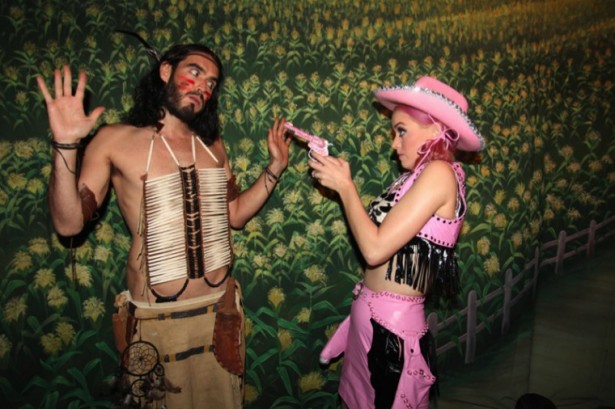By Jorge Rivas
The worst part is the blackface appearance showed up at the same time Justin Bieber made a surprise cameo—perhaps the only moment during the Oscars that could attract a younger audience.
When Octavia Spencer won supporting actress for “The Help,” comedian Paul Scheer tweeted her win “shows just how far we’ve come since Billy Crystal performed in Blackface.”
By Kendra James
And for all I know, maybe I didn’t. No one’s talking about it. It didn’t seem to have made any morning news show headlines. I didn’t hear Kelly Ripa and Neil Patrick Harris mention it and I missed seeing what the women of The View had to say, but given Whoopi’s track record with the hot topics of the day I’m guessing I wouldn’t have been impressed.
Oh, but wait, a quick dive into the comments section at Jezebel (why do I do this to myself?) confirms that I did not, in fact, dream up what I saw last night. Not only did it happen, but it seems to have already been rationalised by the general public. You see, blackface is apparently no longer offensive, especially if it’s not being done to intentionally hurt anyone’s feelings. We’re in post-racial America! These things no longer carry the weight they once did. There’s no need to analyse it to death. It was just a sketch!

Here are some defenses offered by blackface lovers. Not coincidentally, they're the same defenses offered by redface lovers. You know, the people who defend Indian mascots and hipsters in headdresses.
I haven’t over-analyzed anything (“over-analyzed” being the favorite term of some of my white friends) if my immediate gut reaction is revulsion and discomfort. That doesn’t come after hours of reading or thinking on the topic, but rather the innate knowledge that this is wrong and no one is going to do a thing about it. It’s literally getting to the point where, as a black person, I can’t enjoy the things I love without being consistently confronted with racist imagery.
By Marissa Lee
Why? Because being sensitive is what people who are at an disadvantage do. (Hence sensitivity being a negative trait attributed to women and minorities who just want respect. Note that in our culture, “being a pussy” is taken as an insult to men and “having balls” is taken as a compliment.)
In contrast, cultural bullying is something that people with privilege do. People with agent status are lauded for making “gutsy” jokes and expressing their free speech without caring about responsibility or impact (that would make them “too sensitive.”) The entitlement is such that the “overly sensitive” feelings of the people they are disrespecting shouldn’t matter. Meanwhile, people with targeted status are expected to “take it,” as in, docilely receive and accept it.
Being perceived as “too sensitive” (read: weak) suddenly becomes a concern for anyone (gutsy enough) to speak out.
Below: The same idea...a white guy dressed as a minority.


1 comment:
Hollywood used to find any reason to do a blackface routine. Even if it weren't racist, it'd be in the same pool as rubber chickens and the like: Things that rely on the "this is funny" meme rather than the reality that it isn't.
Meh. Award shows are for people with no lives, anyway. (Seriously. While the rest of us are talking about our lives, the guy who saw the Oscars is asking us "Did you see the Oscars?" We don't know him, but he's trying to get to know us.) The entire celebrity obsession is for those with no lives. And journalists who want to talk about anything other than the latest way the banks are screwing us over.
Post a Comment